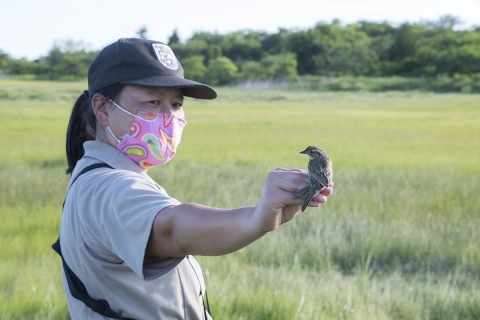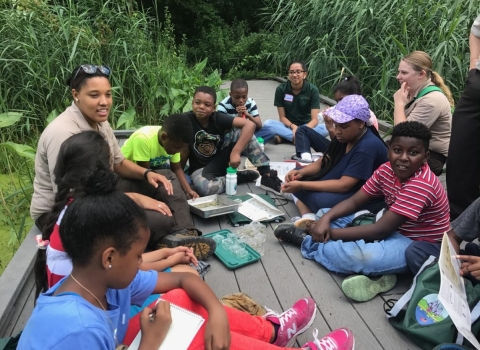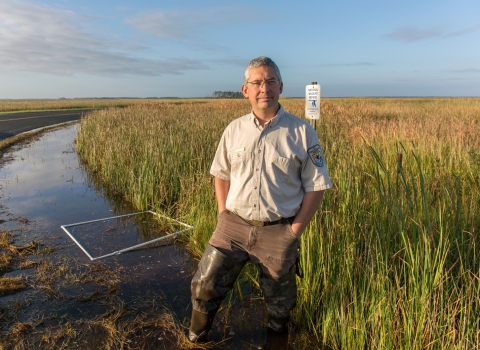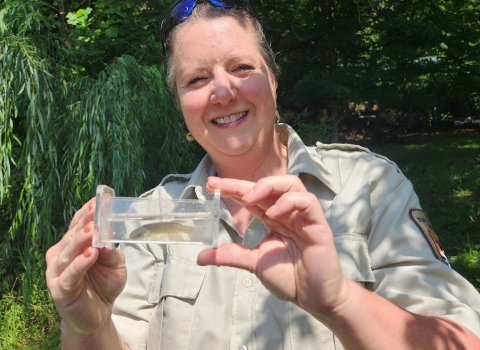Click here to listen to our conversation with Nancy Pau.
This is Climate close-ups: an audio series that brings you the voices of those working against the tide of climate change climate change
Climate change includes both global warming driven by human-induced emissions of greenhouse gases and the resulting large-scale shifts in weather patterns. Though there have been previous periods of climatic change, since the mid-20th century humans have had an unprecedented impact on Earth's climate system and caused change on a global scale.
Learn more about climate change through their daily work here at the Service. It’s an opportunity to take a look at the individuals behind the work and what drives them. But, as you’ll soon learn, for Wildlife Biologist Nancy Pau, there’s no such thing as an individual in this work.
As the Parker River National Wildlife Refuge continues to face the challenges posed by sea-level rise along the Eastern Seaboard, Nancy and her team at the refuge are harnessing the power of partnerships– with the local town, landowners, and other conservation organizations — to develop innovative, nature-based solutions to these growing threats.







